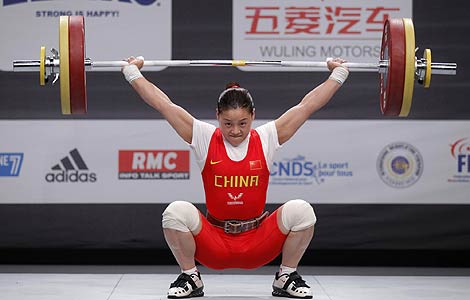Machinery giant set for global push
Updated: 2011-11-11 09:05
By Hu Haiyan (China Daily European Edition)
|
|||||||||
|
Zhan Chunxin, chairman of Zoomlion Heavy Industry Science & Technology. |
Chinese firm sees growth opportunities in Africa, South Asia
When Zhan Chunxin decided to wear a custom tailored Italian suit for a lecture at the Harvard Business School earlier this year, it was not for a fashion statement, but more a business one.
Zhan, chairman of Zoomlion Heavy Industry Science & Technology Development Co Ltd, says he wanted the world to take note of the rapid strides made by the Chinese construction major.
The eighth largest construction machinery maker in the world had earlier demonstrated its global intent when it acquired an Italian firm three years ago. But the 56-year old Zhan maintains that it was not just about expanding in Europe.
"The bigger picture we were seeking to convey through the Italian deal was that Chinese enterprises have arrived on the global center stage."
Though Chinese construction machinery firms have grown significantly in recent years and gained considerable market share, none of them have been able to win global recognition, especially in developed countries, he says.
"It is definitely not a mission impossible for Chinese construction machinery firms to grab market share in developed nations," he says.
Zhan says Zoomlion expects over 10 percent of its revenue to come from overseas markets this year and the number to rise to 30 percent in 2015.
As part of this strategy the Changsha, Hunan province-based company will focus largely on the emerging markets.
"The European market may remain stagnant next year due to the debt crisis, while Africa, in particular northern and southern Africa, and Latin America's Brazil will see robust growth," Zhan says.
During the first six months of this year, Latin America and Southeast Asia were Zoomlion's major export destinations, accounting for 30 to 40 percent of the company's total export volume. South Asia and Africa will be the key drivers for overseas growth, Zhan says.
However, in mature markets, the company is looking to grow through acquisitions. It formed a joint venture with Powermole International Ltd of Britain in 2001 and with Compagnia Italiana Forme Acciaio SpA (CIFA) of Italy in 2008.
"The deal has given Zoomlion a foothold in foreign markets and boosted our overseas sales by combining CIFA's international brands, global sales and distribution network," Zhan says.
Zoomlion is also augmenting its capital for brand building in overseas markets.
Last December Zoomlion listed its shares on the Hong Kong bourse and used the listing proceeds to expand its international business, accelerate globalization strategy and upgrade hardware.
Though overseas sales accounted for 5.72 percent of the total. During the first six months of this year it has slumped to 4.2 percent due to dwindling orders and the worsening global financial situation.
But the company remains confident of the future and has set sights on turnover of over 100 billion yuan ($15.8 billion, 11.4 billion euros) by 2015, up from 32.2 billion yuan last year. To achieve that goal, Zoomlion hopes to have average annual growth rate of 20 percent in the next five years.
"It is not an empty promise. To gain success in the fiercely competitive global market, one has to be ambitious and practical," Zhan says.
In the process of globalization, Zoomlion is also confronted with many challenges in localization and unfair competition, he says.
"Entering a new foreign market, and finding the right talent to manage the business is the toughest challenge for us.
"There are also misconceptions that Chinese companies compete with each other in global markets. Such perceptions create more hindrances."
Zhan feels that the sovereign debt crisis in developed countries is a great chance for Chinese companies.
"Due to the debt crisis, overseas assets like talent and technology are somewhat undervalued, and the companies are struggling to recover. It is a sound platform for Chinese companies planning to go global."












